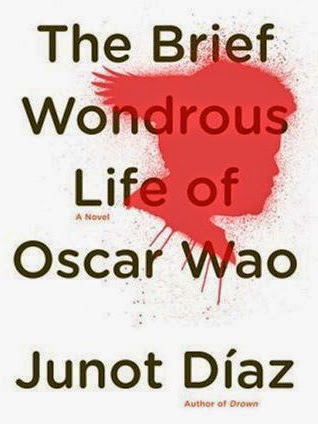Afro-Latin@ Scholars and Writers: Junot Díaz
 Today, as National Hispanic Heritage Month draws to a close, the HBW Blog finishes out its series on Afro-Latin@ writers and scholars with a short consideration of Junot Díaz.
Today, as National Hispanic Heritage Month draws to a close, the HBW Blog finishes out its series on Afro-Latin@ writers and scholars with a short consideration of Junot Díaz.
In a 2011 interview with Fox News Latino, Dominican-American novelist, essayist, and short-story writer Junot Díaz spoke candidly about how, as an immigrant growing up in New Jersey, his Afro-Latino racial and ethnic heritage left him feeling doubly alienated in U.S. American culture.
“I was neither black enough for the black kids or Dominican enough for
the Dominican kids,” Díaz said. “I didn’t have a safe category.”
The difficulty of searching for–much less finding–a safe category or stable identity is one of the central concerns of Díaz’s highly acclaimed, genre-spanning work.
Beginning with his 1996 short story collection Drown, Díaz uses his writing to explore the ambiguities and contradictions of life for those who straddle racial and ethnic borders in ways that make it difficult for others to categorize them. The collection introduces the figure of Yunior, a protagonist who reappears throughout much of Díaz’s work and often serves as the author’s semi-autobiographical textual avatar. “Yunior,” Díaz told The Rumpus in 2012, “defies easy categorization….[H]e inhabits all sorts of seemingly contradictory subject positions.”
 Like Yunior, his author is “both Dominican and urban NJ kid,” and that tension continually informs Díaz’s writing, especially 2007’s The Brief Wondrous Life of Oscar Wao, which won the Pulitzer Prize for Fiction–the first awarded to an Afro-Latino writer. As Glenda Carpio points out on VidaAfroLatina, the award is all the more meaningful because Brief Wondrous Life fully embraces its own Afro-Latin@ness.
Like Yunior, his author is “both Dominican and urban NJ kid,” and that tension continually informs Díaz’s writing, especially 2007’s The Brief Wondrous Life of Oscar Wao, which won the Pulitzer Prize for Fiction–the first awarded to an Afro-Latino writer. As Glenda Carpio points out on VidaAfroLatina, the award is all the more meaningful because Brief Wondrous Life fully embraces its own Afro-Latin@ness.
“Díaz,” Carpio writes, “is the first to win [a Pulitzer Prize] for a novel that makes great art out of the experience of being Afro-Latino in America….[He remains] keen to the African heritage that Dominicans and other Latinos bring to America and their interaction with African Americans in the contemporary U.S. cultural landscape.”
In other words, Díaz is working from a specifically Afro-Latin@ perspective still relatively uncommon among writers. It’s a perspective that Díaz is intentional about sharing in his work.
“My African roots made me what I am today,” he has said. “To these roots, I owe everything.”